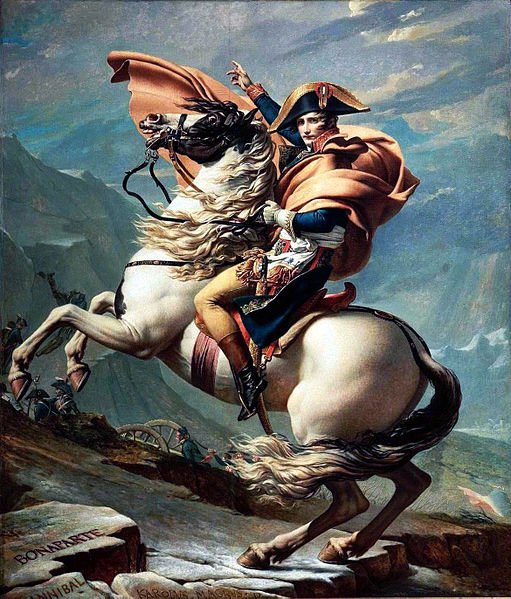In one of my favorite books, Think and Grow Rich, Napoleon Hill, the author of the book, tells his readers to study great men (or women). To study them intimately. Study them in such depth that we know their routine, even how they think and how they’d react to situations in our own lives. Know them in such a way that we can theoretically go to them for advice. Understand what made them great, even what led to their downfall. Incorporate the good into our lives, and steer clear of the bad.
I’ve started following Mr. Hill’s advice on this matter much more as of late. Most recently I’ve started studying another Napoleon; Bonaparte. A controversial figure. Even a war monger, a killer of thousands, often a cynic, a sexist, and a man only after one thing: power. Nonetheless, an ambitious man born into poverty who accomplished incredible things in his life. A man we can, and will, learn a lot from.
In a time when social, economic, and militaristic stature was as much a birthright as anything. Napoleon rose through the military, due to ambition, hard work, acquired intelligence, and the seizing of opportunity. As I read into more depth about Napoleon and his rise, I find myself admiring the man. I can also see what will eventually lead to his downfall. However, what leads to his ascent, can lead to ours as well.
Napoleon
Originally Nabolione Buonaparte, born on the Italian island of Corsica – his first language was Italian, a fact that I’m including in this article for my Mom, an Italian, so there you go Mom – and born amidst turmoil. His native land in a losing battle to French occupation.
Napoleon grew, oddly enough, to despise France, and had a deep desire to free his Corsica from French rule, even though he was a newborn at the time of this battle for Corsican independence.

Over time this passion would quell, and give rise to a new desire: greatness. He wanted glory. He openly hated the rich who were given their positions in the military, or politics, simply because of their wealth. Their position having nothing to do with knowledge or skill, something that Napoleon resented. He didn’t socialize, instead choosing the comfort of books. This was in part due to the fact that he couldn’t afford to drink and party like the other cadets at his military school.
He had little luck early on in his career. But with the rise of the French Revolution, things began to change. Doors began to open, but would close just as fast as they opened. The turmoil of his country reflected the turmoil in his own life. He’d be given promotions, then a new power would take control, and his career would take ten steps back.
Reading about Napoleon early on, and knowing he eventually achieves greatness, you get the feeling that you’re reading about a young, ambitious man who works his butt off only to slightly improve the status of both his family and himself.
You don’t really get the sense that you’re reading about a man who accomplishes greatness beyond, arguably, any story before him because of his starting point. But things start to change. His fortunes improve dramatically, partially due to timing, but primarily because he does what’s necessary to make them change. His greatness comes from a foundation he started very early on in his life. An insatiable passion for knowledge.
“The word impossible is not in my dictionary.” ~ Napoleon
No Idea is Original. Build Your Own Theories & Views Through Study
There are benefits to very situation. Napoleon didn’t have enough money to drink with his peers in his teen years. He resented them. As such, he didn’t have the desire to drink. His passions lay with acquiring knowledge. He wanted so bad to improve his status, and that of his families, that he did nothing on a day to day basis to take away from that dream.
He also admittedly lusted for books. He was so poor that he’d pass a book store, peer in, and covet them like we might covet the model on the cover of a Sports Illustrated Swimsuit Edition. But he couldn’t afford to buy them.
I say, No idea is original, because at some point, someone has though what we’re thinking. What books help us do is form our own opinions, but also study the tactics of others, so, when we’re at a crossroads in the future, we can call upon this knowledge base and act accordingly. Napoleon did this as good as anyone has.
